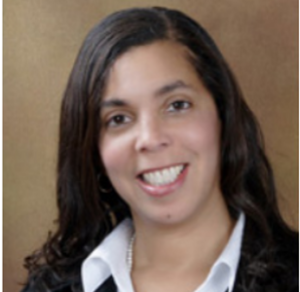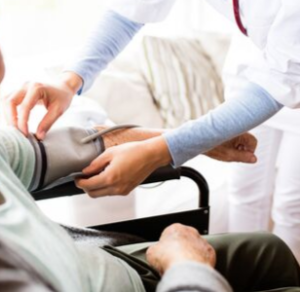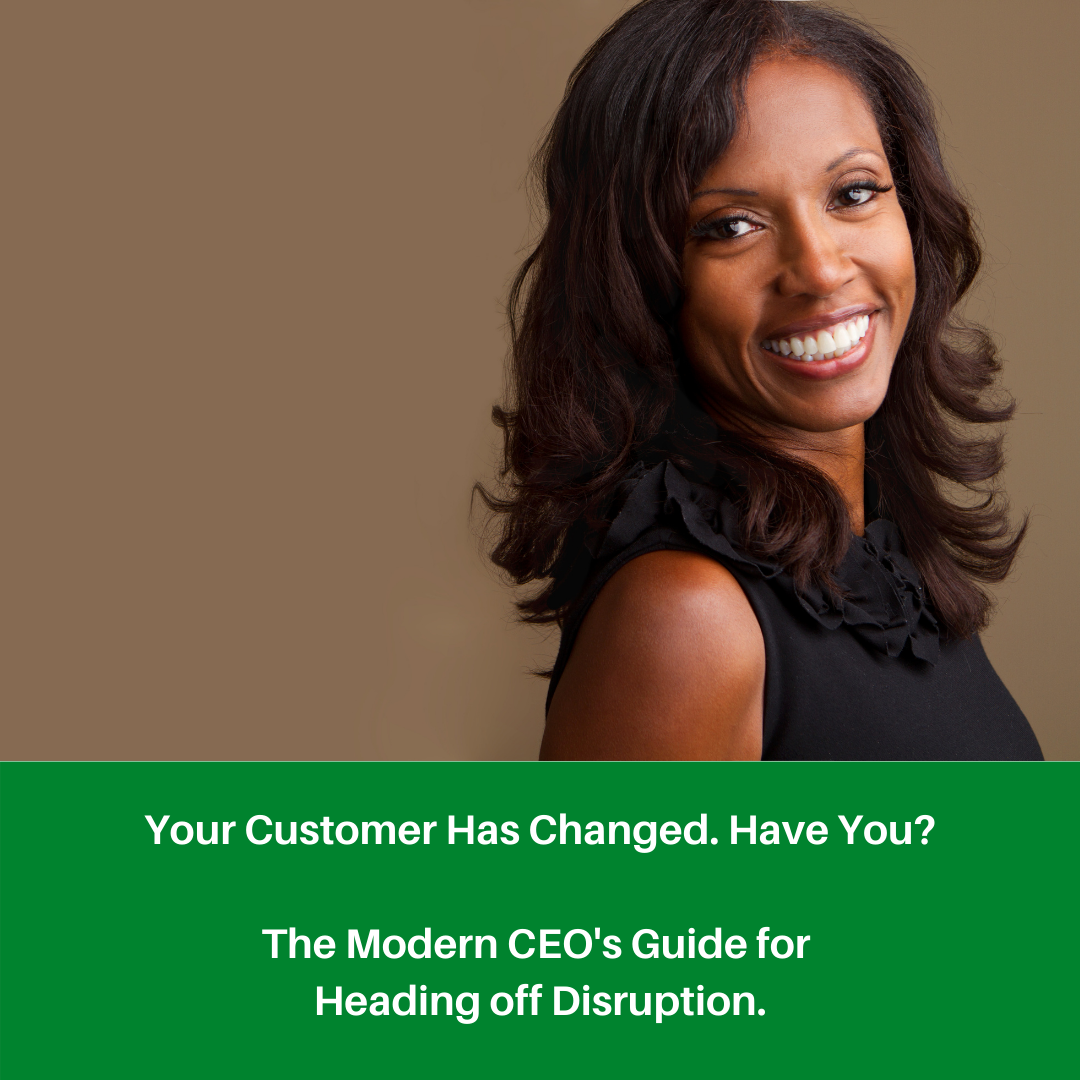The New CEO Series
“I realized with home care I was getting to the patients too late,” said Dr. Taylor.
The CEO role and the internal capabilities required to grow a company are rapidly being redefined. The New CEO is grappling with the:
- Shift from shareholder to stakeholder
- Seismic demographic, ethnic, and gender transference from Baby Boomers to Gen Xers, Millennials, and Gen Zers
- Reimagination of physical products to digital products and multiple services
- Recognition that understanding customer behaviors, not transactions are redefining customer relationships
- Realization that we’re in a Gilded Age where the veneer of everything is great to the Authenticity Age where leaders, consumers, and communities are leveraging social business and corporate social responsibility to solve the challenges we face.
If I had one word to describe Dr. Clishia Taylor, CEO of American Health Care Professionals, Co-Founder of Bless My People Foundation, and Director of Global Health Access (GHA) Institute, it would be innovator. Dr. Taylor wears a lot of hats, including nurse, CEO, co-founder, administrator, lobbyist, and entrepreneur.
In The New CEO Series, this week, we discuss why Dr. Taylor became a CEO and how she builds the internal capabilities she and her firm need to continue to grow. Read Part One of the series here.
__________________________
Becoming a CEO
Fleming: You’ve been in business for 25 years. What’s innovative is you established a for-profit business and a nonprofit business at the same time. Why?

Dr. Clishia Taylor. Photo Credit: Dr. Clishia Taylor.
Dr. Taylor: I started working in the White House and realized this was where I could make the most effective change. I saw community health as the way to provide health care for the community as well as provide income for myself as I pursued my political aspirations. American Health Care Professionals is the for-profit business that provides treatment services.
I opened my business. Then I had a spiritual conversion and became born again. That’s when I realized the Lord had different aspirations for me and politics was not one of them. My only projects would be for Jesus. Therefore, I opened a business and God really transformed the business and I became a social entrepreneur on a mission.
Fleming: How did you define the work the for-profit and nonprofit organizations would perform?
Dr. Taylor: I realized with home care I was getting to patients too late. When I would get them, they were already in crisis mode once they were discharged from the hospital into home care. You’ve already had a stroke or an amputation. You’re already sick.

Rice. Photo Credit: Canva.
I realized a lot of patients said, ‘Why didn’t anybody tell me to stop eating rice? Why didn’t people tell me to stop drinking? Why didn’t anybody tell me this stuff?’ I realized we were getting there too late.
I did my doctoral degree in health care ministry. As a faith-based community, the church was a great place to bring health education to the church and the church leadership because they would listen. I did my thesis on implementing prevention and wellness programs within faith-based organizations and that was what formulated Bless My People Foundation.
The foundation provided prevention and wellness services. We must have served probably a hundred thousand people. We would go into the communities and do blood pressure, blood sugar screening and education. We went to Kenya and saw 150 people in a day. We’re active in the US, Africa, and in the Middle East. Bless My People Foundation became the nonprofit arm for American Health Care Professionals. Global Health Access (GHA) Institute became our virtual training platform for best practices in emerging technology, specifically in telehealth and telemedicine.
Fleming: How do you build your internal capabilities as a CEO?

Home Health. Photo Credit: Canva.
Dr. Taylor: In the 27 years of running a home health company, I’ve learned how to really juggle things. The first five years in home care, I was strictly administrative. One day, the team was short a nurse. They asked me to go out, saying, ‘You’re a nurse?’ I said, yeah, I am. They asked, ‘Can you go out and do an insulin teaching session for a patient?’ I go out to the patient’s home and I realized the technology had changed. I didn’t know how to do insulin shots anymore. I figured it out. I also decided that day that I’ll never put myself in that position again.
I’m always at the beside at least two or three days, out seeing patients and the rest of the time I’m in the office because I don’t want to lose my skills.
Fleming: In the Gilded Age we’re living in now, how do you operate in the Authenticity Age where you’re leveraging social business and corporate social responsibility to upskill and invest in your company to remain relevant?
Dr: Taylor: It’s not an easy process. I’ll tell you it’s moving so fast. I’m fortunate that I started out in politics before I started out in home care. So, understand, I’m a lobbyist, so I’m always reading legislation and involved in changing laws, regulations, and processes.

Regulations. Photo Credit: Canva.
One of the vital steps our organization took and to be true to our values was we become Joint Commission Accredited. Back in the day, accreditation was not required for a home care business. Becoming accredited is costly, but we invested in becoming accredited because we believed it would keep us current and accountable.
The second most important thing we did was to listen to our customers. We asked questions, we listened, and we really made sure we heard them. That allowed us to assign the right person to the right patient. That’s what we did in health care that allowed us to make the necessary changes to give the customer a better health care experience.
Fleming: The Business Roundtable has announced a focus on stakeholders and putting them on equal par with shareholders. One of the things they’re acknowledging is diversity. Diversity, when I look at it, is age, gender, and ethnicity. How are you addressing that in your company?

Diversity and Inclusion. Photo Credit: Canva.
Dr. Taylor: One of my colleagues encourage me to become certified in diversity and inclusion. I think he knew something I didn’t know. I thought I was quite open-minded since we’re pretty diverse as an organization and being a woman of color. Halfway through the course, I realized how far I was from being the diverse and inclusive leader I wanted to be. The challenge I needed to address was the lack of support for diversity and inclusion in our organization.
My eyes were opened to how narrow and exclusive I was. This challenged me. I thought, why am I subjecting myself to a course like this. It’s too reflective. I just didn’t get it. Boy, was I wrong, and it was painful. But I needed it big time.
Through that process, I was able to do some soul searching and realized that I had to take a step back and revisit my values. This helped me to pivot the organization onto a diverse and inclusive pathway that was more human-centered.
We revised our entire program, bringing the tools from the course I took to incorporate them into our organization.
In 2020, we will celebrate the 200th anniversary of Florence Nightingale. Also, next year the UN will recognize the “2020 International Year of Nursing and Midwife.” For more information, watch the video, courtesy of Global Health Access Institute.
Next time, Dr. Taylor will share how listening deeply to your customer and innovation are changing health care as The New CEO.
If you find this interesting, please share on LinkedIn, Twitter, Instagram, or Facebook.



You must be logged in to post a comment.